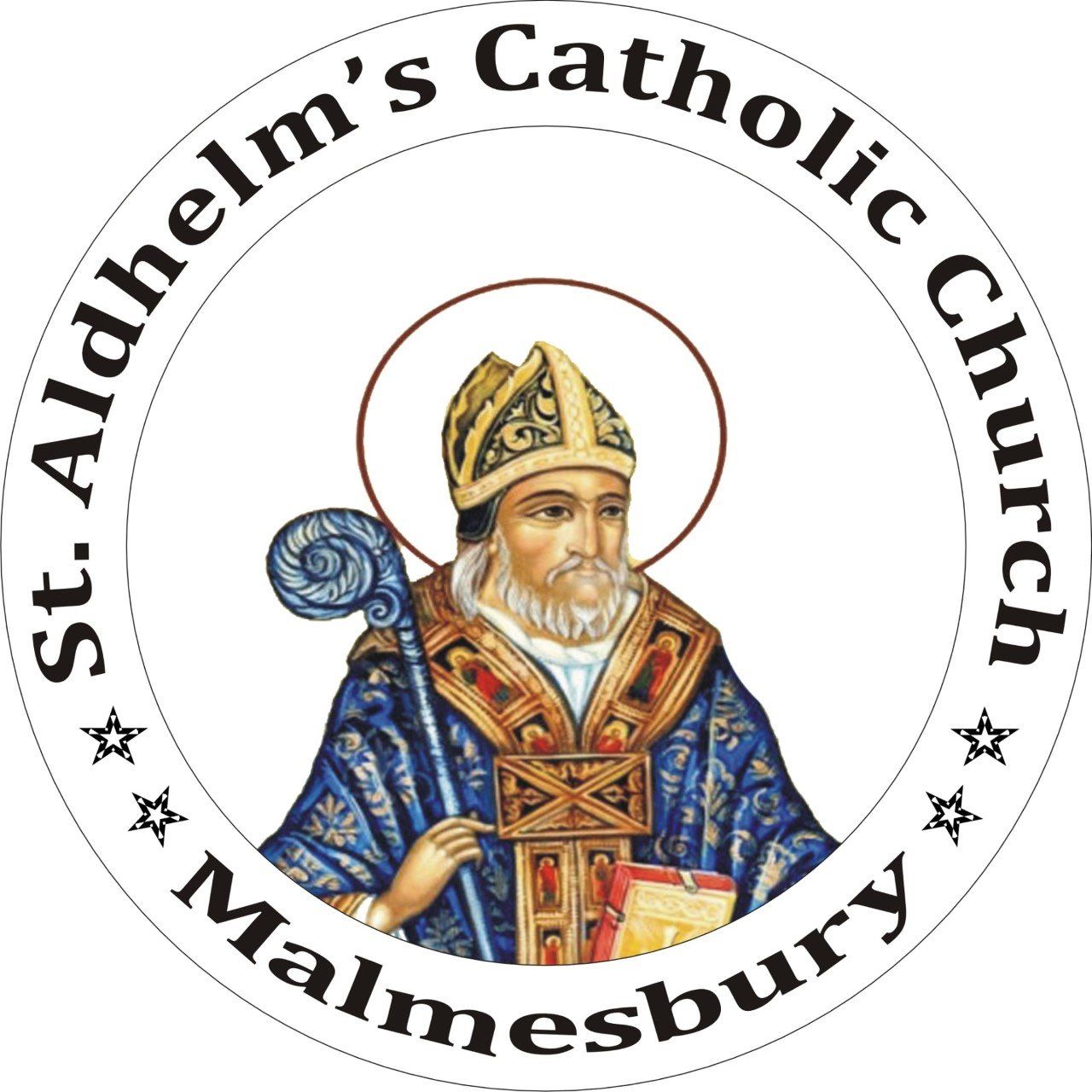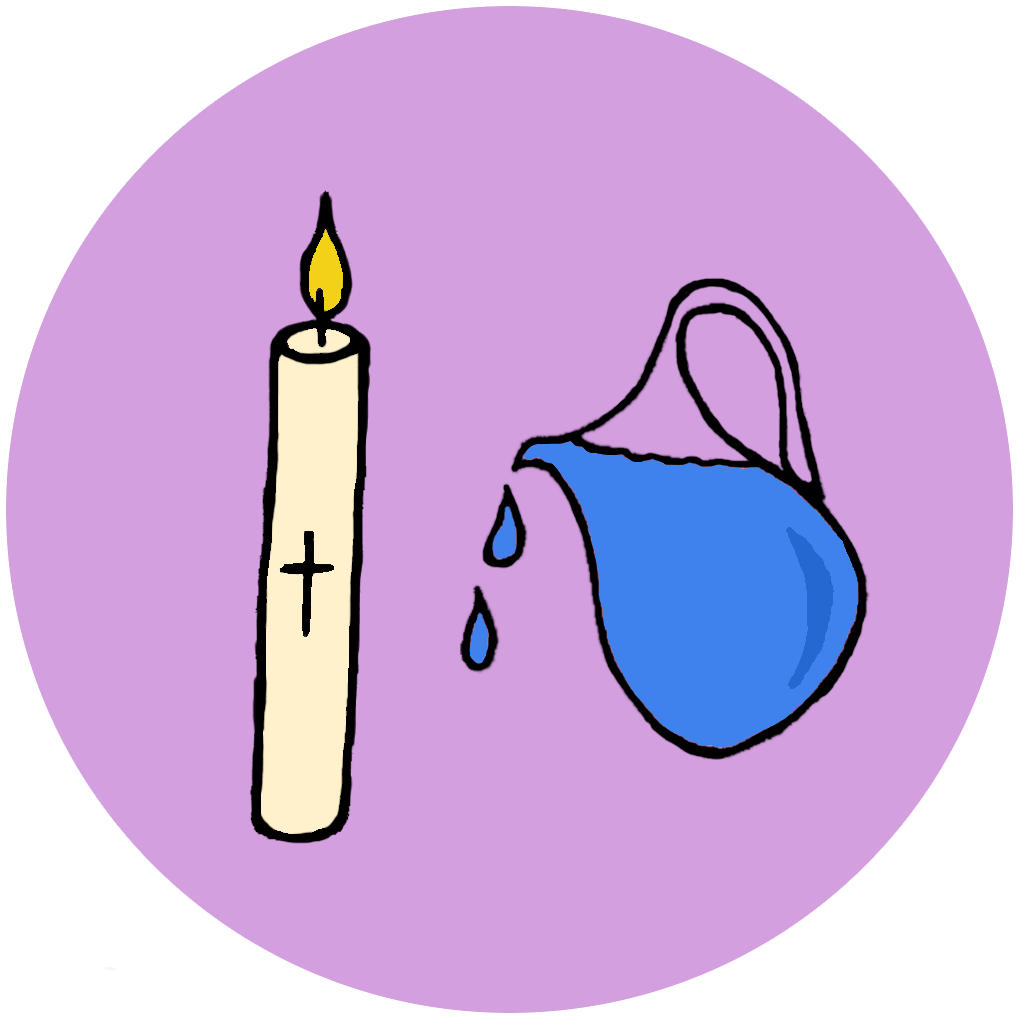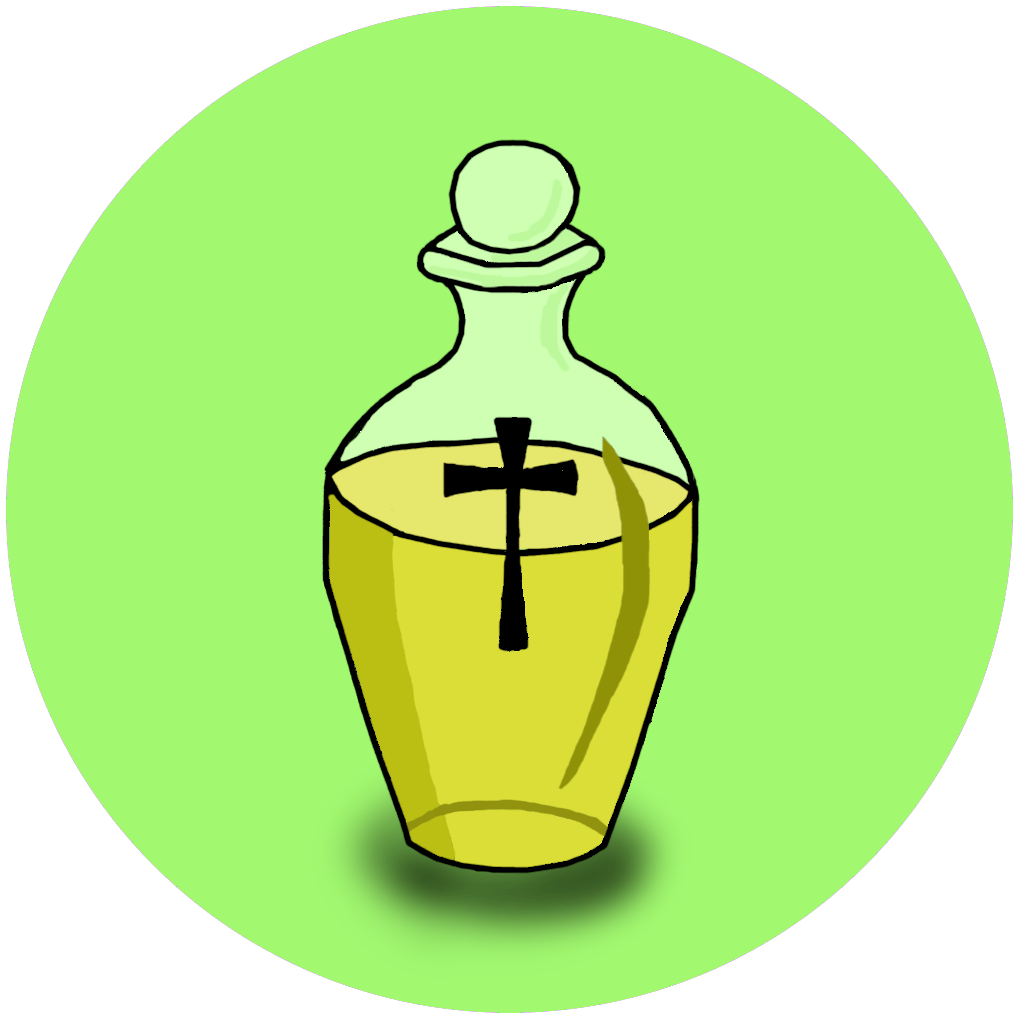The Sacraments
Baptism
Baptism is the basis of the whole Christian life, the gateway to life in the Spirit and the door which gives access to the other sacraments. Through Baptism we are freed from sin and reborn as sons of God; we become members of Christ, are incorporated into the Church and made sharers in her mission: “Baptism is the sacrament of regeneration through water in the word.” (Catechism of the Catholic Church, no. 1213).
How do I receive this sacrament?
If you like your child to be baptized, please ring the parish office (01666822195), or write to the parish email (malmesbury.staldhelm@cliftondiocese.com) to discuss and organize the day and the time for baptism. The form (in pdf format) which you can download in your device/PC and print off, should be completed and returned to the parish office or drop it in the presbytery box.
Adults seeking baptism should contact the Parish office as there is a special course (RCIA-Rite of Christian Initiation of Adults)
Reconciliation
The Sacrament of Reconciliation is one of the most unique and beautiful aspects of Catholicism. Jesus Christ, in His abundant love and mercy, established the Sacrament of Confession, so that we as sinners can obtain forgiveness for our sins and reconcile with God and the Church. The sacrament “washes us clean,” and renews us in Christ.
If you haven’t been to Confession in a while, the Catholic Church wants to welcome you back, and invites you to participate in this beautiful sacrament of healing. Take a step in faith. You’ll be surprised about how free you feel after taking part in the Sacrament of Reconciliation. So many Catholics describe incredible feelings of peace, joy, relief, and love that they never expected. Jesus is calling you to experience His mercy in this way too.
How do I receive this Sacrament?
Any day when there are masses (look up the mass times) 20 minutes before the Mass begins. Please let Fr Thomas know you would like to make your confession. For any other time, please ring the presbytery number (01666822195) or drop an email (thomas.kulandaisamy@cliftondiocese.com) in order to arrange a suitable/convenient time. We also organise twice in a year (one during lent, and the other during Advent) parish reflection and confession. You may avail of these opportunities.
Eucharist
Eucharist could be described as the Sacrament of everyday presence, but that really only scratches the surface. Eucharist means “thanks-giving”. When we look at the Gospels we find that the whole attitude of Jesus towards God His Father was one of thanksgiving.
Read more >>
The best expression of gratitude is the gift of self and we find this throughout the life of Jesus, in so far as all his actions are attuned to the mission entrusted to him by his Father. In all of this the Last Supper is a unique act of thanksgiving.
When we gather for the Eucharist, it is Jesus who gathers us, just as He gathered his disciples at the Last Supper. He speaks His Word to us, just as He spoke it to them. He gives himself to us, just as He gave himself to them, under the form of Bread and Wine. Our celebration of the Eucharist is our act of thanksgiving to God, for the gift of Jesus, for his faithful life, for his death and Resurrection, for his presence among us and for all that his Spirit makes possible in our lives. When it is celebrated well, the Eucharist gives rise in us to an attitude of gratitude, which sends us out the live our own lives as a gift of service to God and to one another.
Confirmation
Most people celebrate Confirmation around the age of twelve, towards the end of Primary School. Others, following a period of preparation, celebrate the Sacrament as adults. Either way, it is the Sacrament that renews the grace of Baptism. Not only does God confirm his choice of us as beloved sons and daughters. We also confirm that we are disciples of Jesus Christ, a decision which in all probability was made for us when we were children, by parents who wanted to share with us their own faith in Jesus.
Read more >>
In the ceremony of Confirmation, the Bishop uses the Holy Oil of Chrism, which is a symbol of mission, to anoint the forehead of the person to be Confirmed, saying “John” or “Mary, be Sealed with the Holy Spirit”.
Sacrament of confirmation is organized depending on the availability of the Bishop and also considering if we have sufficient number of children to organize one. Please ring/write to the parish office to inquire. The form (find below) needs to be completed and returned to the parish office.
Matrimony
It’s exciting, wonderful and a really very special moment when you realise you love someone, and that love means you want to be married to them for the rest of your life. Matrimony is a sacrament, in the same way as baptism or confirmation, and as the catechism tells us ‘it gives spouses the grace to love each other with the love with which Christ has loved his Church; the grace of the sacrament thus perfects the human love of the spouses, and strengthens their indissoluble unity.’ In the sacrament of matrimony, when you come to celebrate your marriage before God in the church, it’s a joyful day when in front of your family and friends, you make a life-long commitment to each other and receive the grace of the sacrament as you begin your life together.
Marriage is a particular way of living out God’s call to everyone rooted in Baptism: the call to follow Christ, living a loving and holy life in the service of others. Marriage remains an exciting calling for many people – to make a difference in the world together through a vowed, life-long, faithful, and loving commitment as husband and wife, and to play their part in being fruitful, sustaining that precious human environment as the vital cell of society. Marriage is a beautiful vocation.
How do I receive this sacrament?
Once you get engaged things start to get busy! It's easy to get caught up in the arrangements, the venue, the menu, the colours for the day and everything that you want to make the day special for you, but ideally, we need six months’ notice to get everything in place in good time. Please arrange to come and see us early if you are thinking of getting married at St Aldhelm’s and we can talk you through the process and identify a suitable date together; the first step is to give us a call (01666 822195) or drop us an email (malmesbury.staldhelm@cliftondiocese.com) and we can talk you through the process.
We will arrange to meet you both together and learn more about you, explain the process, paperwork and next steps. As you prepare for your wedding, we’ll spend some time with you making sure you understand everything and that you’re comfortable and clear on what you’re undertaking. It is a relaxed and straightforward process which greatly enhances the preparation for your life together. We also use an online preparatory course for engaged couples called Smart Loving (https://smartloving.org/engaged/) which helps you explore what you really think and feel about key questions in your life and about your spouse to be. It’s a programme that has been praised as being simple to use and clear in approach, but really makes you think deeply about what it means to be married, and explore what you’re both expecting for the future. It’s something to be enjoyed rather than endured, and we can explain more when we get together.
Forms of Marriage Service
One thing you will want to decide relatively early on in the process is the form of service, which essentially means do you want your marriage to be solemnised within the celebration of a Mass or not? Within or outside of Mass, Catholic marriage liturgies are full and entirely valid, and the choice of service will usually depend on who is getting married and the ability to participate in the liturgy, and in particular to receive Holy Communion. You will naturally want the day to include everyone, and we can talk you through the options when we are together.
Irrespective of which form of service you choose, it begins with the welcome of the bride and groom and the introduction to the liturgy. This is followed by readings from scripture which speak of marriage and God’s love for us. The liturgy of marriage follows, where, after answering a series of question about their understanding of marriage and their freedom to marry, the couple exchange their vows. Rings are then usually blessed and exchanged. There are then prayers for the newly married couple and for all who are married. The next common element is the nuptial blessing where the couple are prayed for, and their future life together blessed. After the liturgy the civil registers are signed.
Father Thomas, Deacon Remi and Deacon Steve are appointed as civil registrars, so we register your marriage in the church and complete the civil formalities on the day. The one thing you must do yourselves in advance, and which we cannot do for you, is give notice to marry to your local registrar. Once registered, not less than a month before the wedding, you will be given authorisation forms, without which we cannot conduct the ceremony. We’ll talk through this aspect when you come to see us, but this is vital element of the approval to marry and we cannot conduct the ceremony without having the relevant civil permission, so go to speak to the local Registry Office as soon as you can.
It’s wonderful that you are considering celebrating your marriage at St Aldhelm’s – Matrimony is a wonderful sacrament that bestows many graces on the couple who marry but also the friends, family and community around them. Come and have a chat and we can explain everything to you both.
Holy Order
Each one of us, by virtue of our Baptism, is called to share in the priesthood of Christ. Our altar is the world and our sacrifice is the daily offering of our lives and our work in the service of God and of one another. The “ministerial priesthood” is a particular expression of the “common priesthood” in which we all share through Baptism. It is not the vocation of the majority, but its particular purpose is to be the visible sign of Christ in the exercise of his ministry. Those who are ordained are not “more important” than anyone else in the Church. They are called to serve God’s people in living their relationship with God.
Read more >>
The Sacrament of Holy Orders, in each of its degrees, is conferred by the “laying on of hands” and ancient ritual which symbolises the coming of the Holy Spirit. It is used also in the Sacraments of Confirmation Anointing and Reconciliation. In the Sacrament of Holy Orders, the laying on of hands reminds us that, while those who are ordained are chosen from the community, their mission comes through the power of God’s Spirit.
Anointing of the Sick
Healing was a key element in the ministry of Jesus during his life on earth. It was an expression of the compassion of God. The healing ministry of Jesus was not just about “fixing broken bodies.” It was also about making it possible for people to be, once again, fully integrated into the life of the community.
Read more >>
In the anointing of the sick, we use oil as a visible sign of the healing presence of Jesus. This is not some form of magic. We believe that Jesus is alive now, and that he continues to care for the sick. He wants us, his disciples, to be the ministers of his healing presence, through the power of his Holy Spirit. In the letter of St. James we read:
“Is anyone among you sick? Let them call the elders of the church to pray over them and anoint them with oil in the name of the Lord. And the prayer offered in faith will make the sick person well; the Lord will raise them up. If they have sinned, they will be forgiven.”
How do I receive this sacrament?
The anointing of the sick may be celebrated in the family home, in the hospital or nursing home, or in the parish Church. Ideally, there should be some kind of community gathered around the person who is to be anointed, even if there is only one other person, to join in the prayers, a family member, carer or friend.
If anyone needs/desires to be anointed, please get in touch with the parish office either by ringing or emailing. The priest will arrange to anoint the sick.







